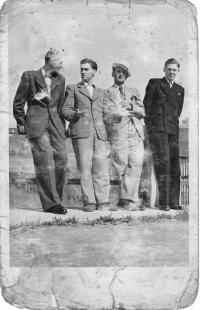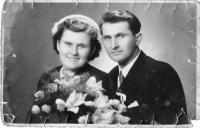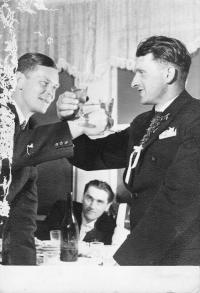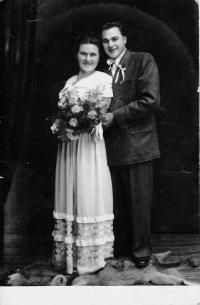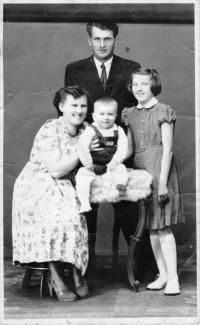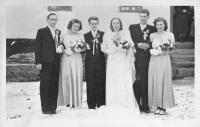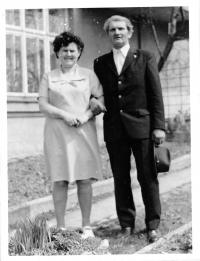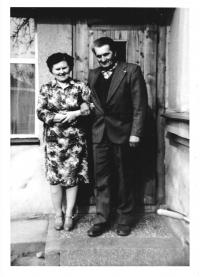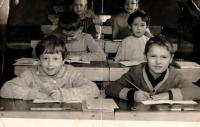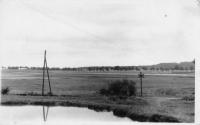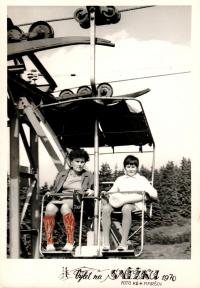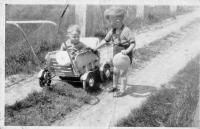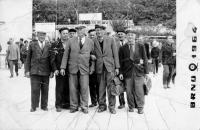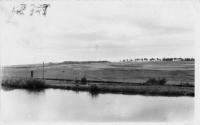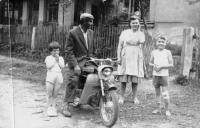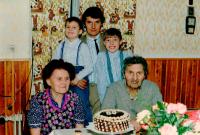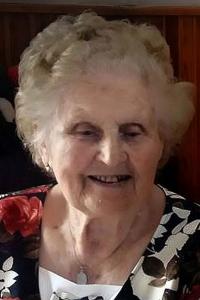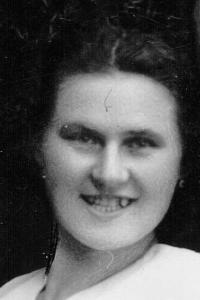I´d give anything for being able to farm privately

Download image
Blažena Nepauerová, née Cacková, was born on 4 July, 1927 in a farming family in Hlásnice in Vysočina region. Cackovi had a small farm, his father was earning a little extra as a mason at constructions. At the end of the second world war German soldiers burnt one of two houses of Cackovi. As a replacement the family was given a farm of displaced Germans in a nearby village of Jedlová. Blažena Nepauerová worked in a hospital in Polička as a nurse for four years. In 1953 she married a farmer Josef Nepauer from Polička nad returned to working at a farm. Until 1958 the husbands were resisting to joing the agricultural cooperative, yet in the end they signed too. The parent of Blažena Nepauerová refused farming in agricultural cooperative until they were forced to evict the house. A year later her psychically exhausted father died.
